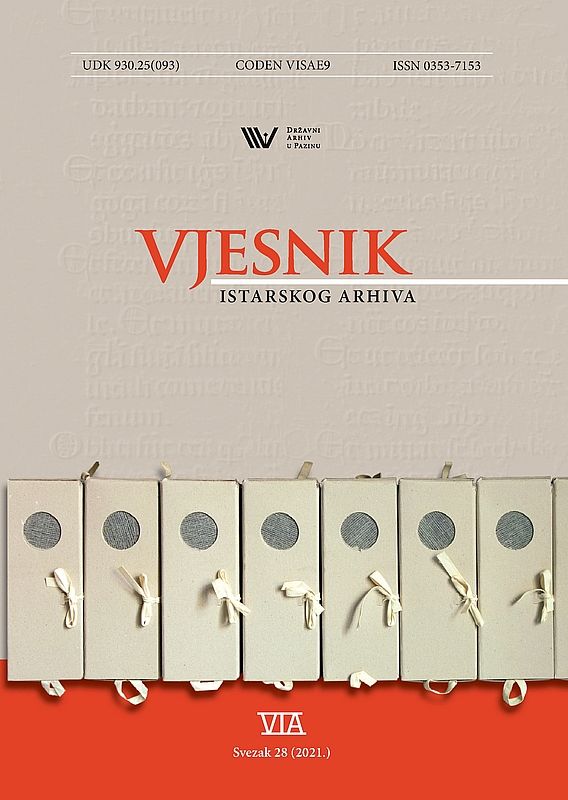Dominium quoad protectionem: The Alliance between Dvigrad and Hugo VIII of Duino from 1386
DOI:
https://doi.org/10.31726/via.28.4Keywords:
Late Middle Ages, 14th century, the Patriarchate of Aquileia, Dvigrad, Hugo VIII of Duino, guardianship, the County of PazinAbstract
The author edits and analyzes an inedited charter, issued in Dvigrad in 1386, by which an alliance was forged between the Commune of Dvigrad, nominally under the jurisdiction of Aquileian patriarchs, and Hugo VIII of Duino, the captain of the neighboring County of Istria, a jurisdictional region under the supreme authority of House Habsburg. Highlighting various calamities that plagued the Patriarchate of Aquileia and the Margraviate of Istria during the final decades of the 14th century, the appointment of Hugo VIII as the new guard (Lat. advocatus) of Dvigrad is interpreted in the light of jurisdictional plurality, porous boundaries of Istrian Middle Ages, and, most importantly, the reciprocal nature of the lord-subject relationship. The author concludes that the newly forged alliance was primarily motivated by the inability of the incumbent Istrian margraves to offer adequate military protection to their subjects, especially in the context of traditional border disputes between the subjects of the Church of Aquileia and the subjects of the County of Istria. Moreover, as the Church of Aquileia plunged into civil war which pitted the pro-Venetian faction led by Udine against the pro-Paduan faction led by the de iure patriarch, Philip d’Alençon and Cividale, Hugo VIII of Duino emerged as one of the most powerful regional potentates. At the same time, the incumbent margrave of Istria, Domnius of Castello, openly supported the pro-Venetian front and as such the legitimacy of his office was disputed by the lawful patriarch Alençon; Hugo VIII, on the other hand, remained officially neutral in the conflict, but he tacitly supported the pro-Paduan alliance, becoming a de facto enemy of Margrave Domnius, the de iure lord of Dvigrad. It was in this context of enmity, crisis, and the uncertainty of civil war that the Commune of Dvigrad, most probably pillaged by the neighboring subjects of the County of Pazin backed by Hugo VIII, decided to forge an alliance with their more powerful neighbor, preferring to constitute the incumbent captain of Pazin as their official guard and to pay him a new annual tax (i.e. a protection racket) than to remain faithful to the powerless Church of Aquileia.
Downloads
Published
Issue
Section
License

This work is licensed under a Creative Commons Attribution-NonCommercial 4.0 International License.

